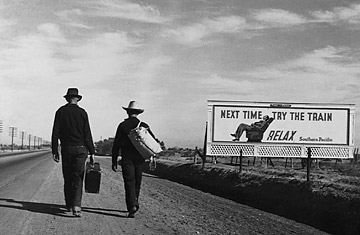
New York City
I had a very affluent childhood right up until I was about nine. We lived in several gracious homes, I went to private school, we had a live-in servant and so on. My father had a bulletproof Cadillac he had bought from a bootlegger.
I was born in New York City because my parents were American citizens and they wanted their children born there. As I always say, my mother came home to foal. My father was a fur trader, though, so I spent most of my childhood in Canada.
And then suddenly, our most gracious home was gone. The servants left. I was so dumb that when we were losing the last of our grand houses, I told my classmates that "Gee, bailiffs are coming to our house." I didn't know what a bailiff was or what that meant. I was too damn young. After we lost the last of our homes, we moved to New York to get some kind of assistance from my mother's family. Well, from both of my parents' families. We lived in a small, one-bedroom apartment while my father went out on the road, recouping things. He was a traveling salesman, he always had a new invention. He sold a dry cleaning machine, and a machine for printing things on bags and signs. As I entered my teens, I really felt the blow of the depression.
When I came to New York, I was astounded that not everybody wore fur coats. I was astounded that not every apartment had a dining room. I wore my hair in a kind of Alice in Wonderland style, and one of my teachers told me to tell my mother to braid my hair — so I didn't "pick up things." Lice were not unknown among impoverished families at the time.
I do remember once — my father never quite excused me for saying this — I said to him, "Why don't you become a milk man? Like so-and-so's father, at least he earns $28 a week!" I must have been about 12 or 13 when I said that brilliant thing to my father.
Judith Crist worked for over 30 years as a reporter and film critic at the New York Herald Tribune, TV Guide and New York Magazine. She still teaches at the Columbia University Graduate School of Journalism.